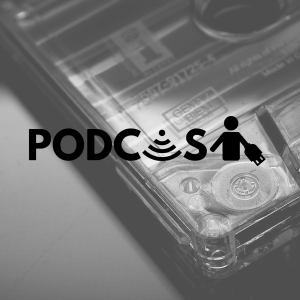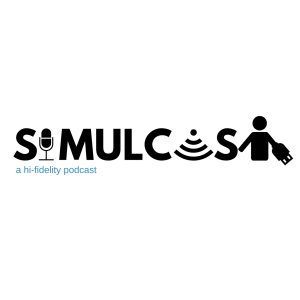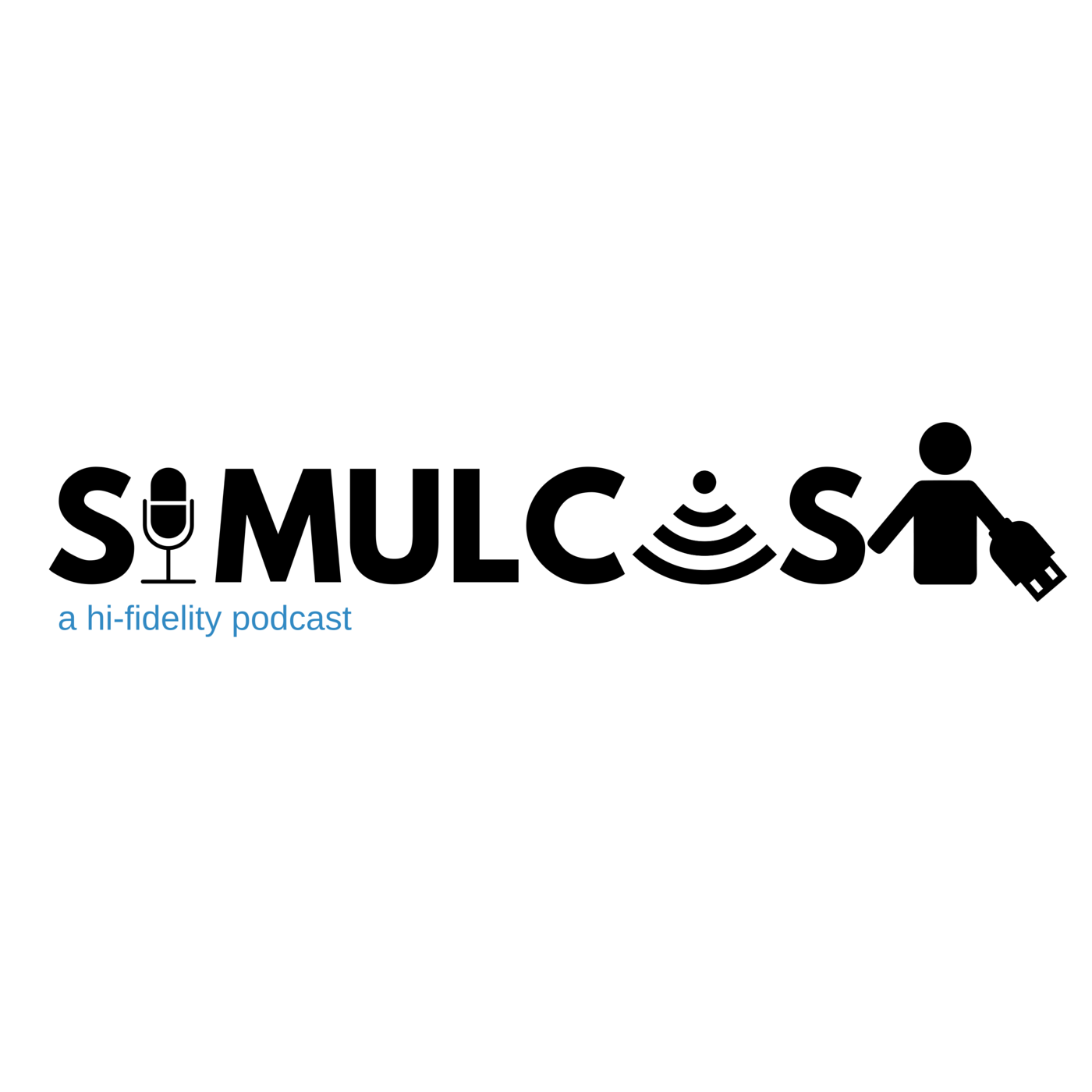Episodes

Tuesday Oct 10, 2023
178 Simulcast Journal Club October 2023
Tuesday Oct 10, 2023
Tuesday Oct 10, 2023
AI and Chat GPT in simulation and in publishing, helping babies breathe (and live) through simulation training and another take n the ‘safe not soft’ discussion - four more excellent articles for Ben and Vic to discuss this month.
Links here.
Rodgers, David et al. Artificial Intelligence and the Simulationists. Simulation in Healthcare: The Journal of the Society for Simulation in Healthcare, September 21, 2023.
Scerbo, Mark Can Artificial Intelligence Be My Coauthor?. Simulation in Healthcare: The Journal of the Society for Simulation in Healthcare 18(4): p 215-218, August 2023.
Vadla, May Sissel et al.. Increase in Newborns Ventilated Within the First Minute of Life and Reduced Mortality After Clinical Data-Guided Simulation Training. Simulation in Healthcare: The Journal of the Society for Simulation in Healthcare, July 18, 2023.
Pai, Dinker Ramananda MS, FRCS (Edin), CHSE, FSSH. Recovering From Adversity: Do We Need to Protect Our Learners?. Simulation in Healthcare: The Journal of the Society for Simulation in Healthcare 18(5):p 349-350, October 2023.
Also – don’t forget – Simulation Reconnect is on again.
Wednesday November 15th at Bond University. Registrations open now!
Happy listening

Friday Sep 08, 2023
177 Simulcast Journal Club September 2023
Friday Sep 08, 2023
Friday Sep 08, 2023
Death of the simulator, co-regulated learning, simulation-enabled building redesign, and writing better (or not) with Chat GPT - four more excellent articles for Ben and Vic to discuss this month.
Links here.
Rajendran G, et al. (August 10, 2023) The Effect of Simulated Patient Death on Learner’s Stress and Knowledge Retention: A Systematic Review and Meta-Analysis of Randomized Controlled Trials. Cureus 15(8): e43278
Lorello GR, et al. Relinquishing control? Supervisor co-regulation may disrupt students' self-regulated learning during simulation-based training. Adv Health Sci Educ Theory Pract. 2023 May 28.
Smith-Millman M,et al. Hazard Assessment and Remediation Tool for Simulation-Based Healthcare Facility Design Testing. HERD. 2023 Aug 7
Lingard L. Writing with ChatGPT: An Illustration of its Capacity, Limitations & Implications for Academic Writers. Perspect Med Educ. 2023 Jun 29;12(1):261-270.
Plus Ben referred to this interesting Revisionist History episode – on answering new moral dilemmas through the Jesuit practice of casuistry. (We listen to podcasts as well you see)
Also – don’t forget – Simulation Reconnect is on again.
Wednesday November 15th at Bond University. Registrations open now!
Happy listening

Wednesday Aug 09, 2023
176 Simulcast Journal Club August 2023
Wednesday Aug 09, 2023
Wednesday Aug 09, 2023
Virtual and older SPs, transformative simulation, and psychological safety - four more excellent articles for Ben and Vic to discuss this month.
Links here.
Smith et al. Older adults as simulated participants: a scoping review
Bond et al. The Use of Virtual Standardized Patients for Practice in High Value Care
Klenke-Borgmann et al. Role Clarity and Interprofessional Colleagues in Psychological Safety: A Faculty Reflection
Also – don’t forget – Simulation Reconnect is on again.
Wednesday November 15th at Bond University. Registrations open now!

Friday Jul 21, 2023
175 Simulation for Social Integration
Friday Jul 21, 2023
Friday Jul 21, 2023
We talk a lot about sim for education or quality improvement, but less about how it can connect us as people. In this episode Ben and Eve talk to Drs Sam Smith and Vicky Tallentire, the lead authors of a new essay in IJOHS entitled “Simulation for Social Integration”.
Together we explore how Sam and Vicky’s article introduces this concept of simulation for social integration, what that means, and then what that looks like through a series of case studies from sim teams around Scotland. In doing so we unpack some deeper theories from the social sciences about the seeds of discord and how we can blossom them into something more productive.
Many thanks to Sam, Eve and Vicky for their time.
Reference:
Samantha Eve Smith, Victoria Ruth Tallentire. Simulation for social integration, International Journal of Healthcare Simulation, . 10.54531/tdzn8875. https://www.ijohs.com/article/doi/10.54531/tdzn8875

Friday Jul 07, 2023
174 Simulcast Journal Club July 2023
Friday Jul 07, 2023
Friday Jul 07, 2023
Four more excellent articles for Ben and Vic to discuss this month. Speaking up (or listening down?), transformational debriefing, is deliberate practice really better than self guided practice, and the perils of ‘god-terms’.
Links here.
Barlow et al. Understanding observed receiver strategies in the healthcare speaking up context.
Petrosoniak et al. Are we talking about practice? A randomized study comparing simulation‑based deliberate practice and mastery learning to self‑guided practice
Varpio & Sherbino. Demonstrating causality, bestowing honours, and contributing to the arms race: Threats to the sustainability of HPE research
Kainth & Reedy. Transforming Professional Identity in Simulation Debriefing: A Systematic Metaethnographic Synthesis of the Simulation Literature
Also – don’t forget – Simulation Reconnect is on again.
Wednesday November 15th at Bond University. Registrations open now!
Happy listening

Wednesday Jun 14, 2023
173 Interprofessional Education in Healthcare Simulation with Dr Karen Dickinson
Wednesday Jun 14, 2023
Wednesday Jun 14, 2023
What do we really mean by ‘IPE’? And how can we design and deliver simulations for IPE outcomes?
In this episode, Vic speaks with Dr Karen Dickinson about her work in IPE at the University of Arkansas for Medical Sciences in Little Rock, AR., where she is an Assistant Professor of Surgery and the Director of IPE Simulation and Clinical Skills Training.
Karen gave us an overview of work in the area of IPE – “learning about, from, and with other professions”. Groups such as the Interprofessional Education Collaborative (IPEC) offer resources such as this scoping review of IPE and patient care and this Institutional Assessment Instrument (readers can evaluate their IPE efforts locally)
We spoke about the differences and similarities between ‘IPE’ and ‘team training’ in sim and the barriers and enablers of this kind of work.
Karen cited some examples, including interprofessional trauma simulations, and the mock trial involving health professions and law students, (previously discussed on Simulcast!)
A cross-cutting theme was that success requires a thoughtful change management strategy, including institutional alignment, deep engagement with stakeholders, and using evidence-informed approaches.
Thanks to Dr Karen Dickinson for her insights

Sunday Jun 04, 2023
172 Simulcast Journal Club June 2023
Sunday Jun 04, 2023
Sunday Jun 04, 2023
Ben and Vic talk about four articles from the healthcare simulation literature, on diverse topics: psychological safety, cognitive load measurement, roles for maternity emergencies, and reflective pauses to optimise learning
Links here
Bahr, N., Ivankovic, J., Meckler, G. et al. Measuring cognitively demanding activities in pediatric out-of-hospital cardiac arrest. Adv Simul 8, 15 (2023).
Janssens, Sarah & Kikkawa, Yoriko & Mavin, Timothy. (2023). How do maternity teams perform in and perceive a role-based approach to teamwork in maternity emergencies? A qualitative study in simulation. International Journal of Healthcare Simulation. 10.54531/wywv6555.
Lee JY, Donkers J, Jarodzka H, Sellenraad G, Faber TJE, van Merriënboer JJG. The Effects of Reflective Pauses on Performance in Simulation Training. Simul Healthc. 2023 May 3.
Somerville SG, Harrison NM, Lewis SA. Twelve tips for the pre-brief to promote psychological safety in simulation-based education. Med Teach. 2023 May 21:1-8.
Also – don’t forget – Simulation Reconnect is on again.
Wednesday November 15th at Bond University. Registrations open now!

Tuesday May 23, 2023
171 Stress Exposure Simulation. Crossover Ep ”The Emergency Mind”.
Tuesday May 23, 2023
Tuesday May 23, 2023
In this joint episode with The Emergency Mind podcast, Vic Brazil and Dan Dworkis talk about ‘stress exposure’ simulation/ training, and how we prepare ourselves and our teams to perform under pressure. We started with a general discussion about the need for this kind of training and how others have approached it. There are some fantastic resources on this topic, including this one from First10EM.
The main conversation was our recent article - Exploring participant experience to optimize the design and delivery of stress exposure simulations in emergency medicine.
In our conversation we also talked about adaptive expertise, the book ‘Teams that Work’, and Dan’s application of mental rehearsal and principles from martial arts.
Happy listening!

Friday May 05, 2023
170 Simulcast Journal Club May 2023
Friday May 05, 2023
Friday May 05, 2023
Ben and Vic talk about four articles from the healthcare simulation literature. Practical lessons mixed with some theoretical deep dives!
Links here
Vemuri, Sidharth. Et al. Informing Simulation Design: A Qualitative Phenomenological Study of the Experiences of Bereaved Parents and Actors. Simulation in Healthcare: 18(2):p 75-81, April 2023.
Rose SC, et al. Interprofessional clinical event debriefing-does it make a difference? Attitudes of emergency department care providers to INFO clinical event debriefings. CJEM. 2022 Nov;24(7):695-701.
Phillips, Emma et al. Maximizing opportunities during a simulation fellowship. International Journal of Healthcare Simulation April 2023
Clarke, Samuel et al. Fostering Adaptive Expertise Through Simulation. Academic Medicine. April 21, 2023. And for more on educating for adaptive expertise, you might like to listen to this Harvard Macy Institute podcast.
Also – don’t forget – Simulation Reconnect is on again.
Wednesday November 15th at Bond University. Registrations open now!

Friday Apr 28, 2023
169 What’s Your Listening Style?
Friday Apr 28, 2023
Friday Apr 28, 2023
Training to listen effectively is a powerful skill that can transform our conversations in healthcare simulation, clinical work and even our home lives. In this episode Vic interviews Rebecca Minehart, Ben Symon and Laura Rock on their Harvard Business Review article “What’s your Listening Style” in order to deepen our understanding of what listening is, how it can be classified and how we can use this knowledge to shape the ways we connect with the humans around us.
If you’d like to explore what your listening style is, you can check out the quiz in Bodie’s 2013 paper here.
The paper
Minehart, R., Symon, B. and Rock, L. (2022) What's your listening style?, Harvard Business Review. Available at: https://hbr.org/2022/05/whats-your-listening-style

